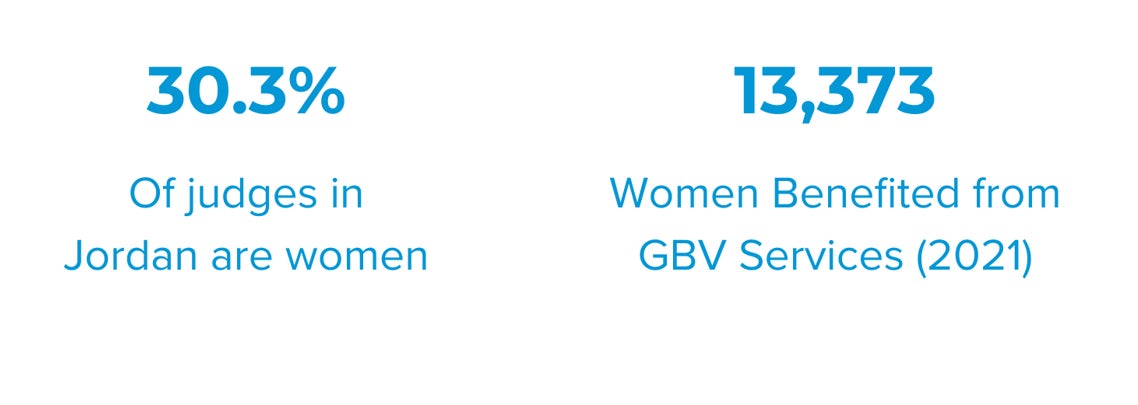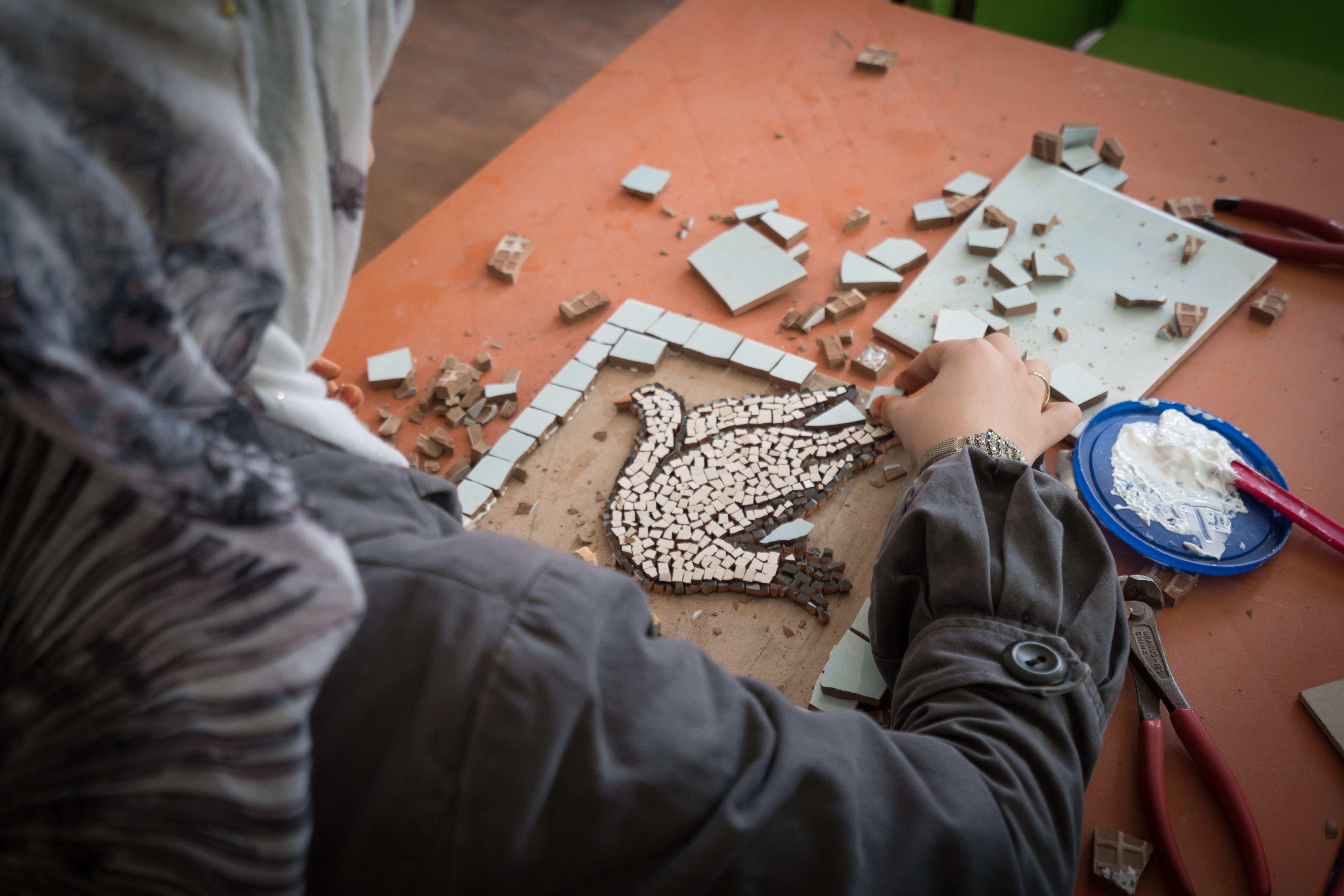
Women, Peace and Security

Since the 1940s, Jordan has navigated numerous challenges, including wars, occupations, political coups in neighboring countries and the ripple effects of the Arab Spring that began in 2011. Despite these hurdles, the country has consistently transformed adversity into opportunity, fostering stability and advancing education, employment and inclusive platforms for both men and women to contribute to relief and recovery efforts. Through these efforts, Jordan has solidified its aspiration to become a beacon of peace and security in a region marked by ongoing instability.
Jordan’s central geographical location has made it a refuge for nationals from neighboring countries fleeing conflict, with the most significant influx resulting from the Syrian crisis. The majority of those displaced are women and children, who remain particularly vulnerable to violence, displacement and insecurity. The strain of accommodating these populations, alongside limited natural resources and regional tensions, has required massive response efforts to maintain Jordan’s stability and security.
In addition, the global context of peace and security is shifting, marked by the spread of cross-border radicalization, violent extremism and terrorism. These challenges highlight the urgent need for gender-sensitive interventions that address the specific vulnerabilities of women and girls while engaging men and boys as allies in achieving peace and security.
Response:
Integrating Women into Peace and Security: Jordan’s National Action Plan for UNSCR 1325
UN Women, in collaboration with the Government of Jordan and civil society, is actively working to implement the Women, Peace and Security (WPS) agenda. This initiative aims to enhance women's participation in conflict prevention, peacekeeping, countering violent extremism and addressing gender-based violence. The 2015 UN Women Global Study on the Implementation of UNSCR 1325 demonstrated that the WPS agenda strengthens security responses and ensures the protection of women’s rights in crisis settings.
Under United Nations Security Council Resolution 1325 (UNSCR 1325), Jordan adopted the National Action Plan (JONAP) in December 2017. This plan reflects Jordan’s commitment to integrating women into peacebuilding and security efforts and aligning national responses with international frameworks. JONAP aims to enhance Jordan’s resilience and leadership as a regional driver of peace.
Key Areas:
- Security sector reform and peace operations: UN Women is working in partnership with the Jordanian Police and Armed Forces to integrate gender perspectives into security sector reforms, enhancing institutional capacity and gender-sensitive policies.
- Preventing violent extremism: UN Women supports the government in integrating gender perspectives into its PVE strategy, developing evidence-based policies, and promoting gender-responsive counter-narratives to address radicalization.
- Response to women and girl refugees in Jordan: UN Women continues to work on enhancing protection services and access to justice for Syrian refugee and vulnerable Jordanian women by providing technical expertise, strengthening gender-responsive justice services and raising awareness of legal rights.
- Building a culture of peace and gender equality, with a focus on youth and gender-based violence prevention: UN Women is supporting the government and civil society organizations to implement the commitments in the JONAP 1325, through the provision of assistance to the establishment and strengthening the coordination mechanism.
Thanks to the support of
The EU Commission, the Australian Department of Foreign Affairs and Trade, and the governments of Canada, Finland, France, Iceland and Italy.
This programme has been impactful.
